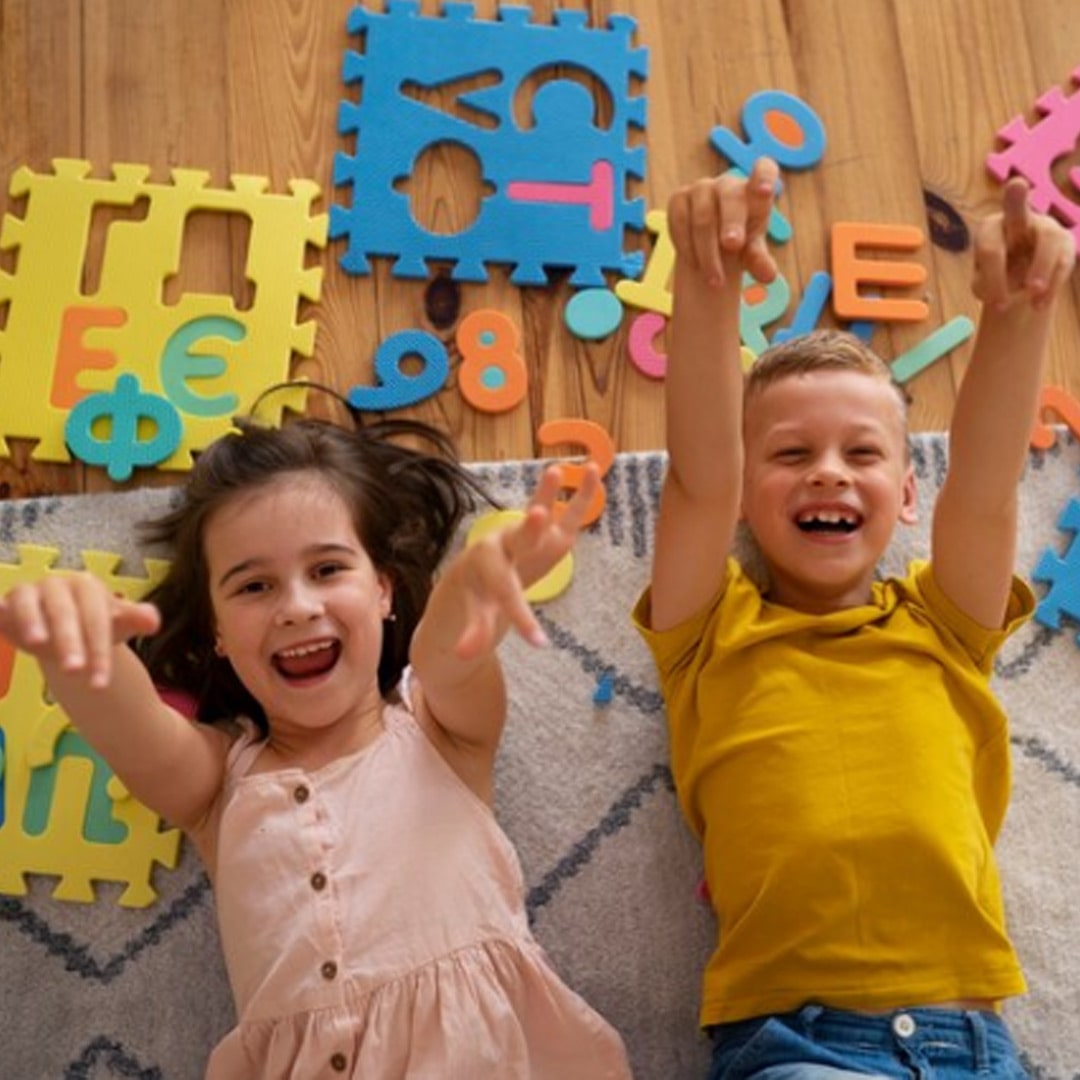Please enter the code we just sent to whatsapp 91-11-46710500 to proceed
Didn't Receive OTP?

Language isn't just words. It's how kids relate, communicate, and interpret the world around them. Whether a kid is just starting to babble or already forming sentences, there's always room for improvement — and what better way to facilitate that improvement than with play? Yes, play. In games, stories, songs, and creative activities, kids not only have fun, but they also strengthen their communication. In this blog, we’ll explore fun language development activities that make learning natural, joyful, and super effective.
Before getting into actual activities, let's comprehend how play functions. Kids learn effectively when they are focused and comfortable. Games and participatory activities keep them emotionally engaged and cognitively stimulated. They are inclined to experiment, attempt new vocabulary, and build social and emotional language. This is the reason why language learning games for children have become a norm in schools and homes.
One of the most effective activities for early language acquisition is storytelling. But don't just read a book. Make it interactive. Stop and say, What do you think comes next? or Why did the cat do that? Let your child invent silly conclusions or speak up for a character. These questions challenge children to use descriptive language, make predictions, and construct narratives.
Bonus idea: Use puppets or toys to act out scenes. You’ll be amazed how shy kids open up when they’re speaking through a character.
Need to get your child active and verbal? Hide word cards or picture cards around the home and instruct them to seek out the items. For instance, provide hints such as, Find something beginning with 'B' and yellow. While they search and speculate, they'll be doing vocabulary and phonics.
This is one of the most exciting interactive English activities for children — a combination of action, clues, thinking, and fun. You can make it as easy or as difficult as you wish.
Kids adore pretending to be doctors, astronauts, chefs, or animals who can talk. Create a "restaurant" at home and have a turn each being the customer and the waiter. Make use of menus, question one another, and invent conversations. In all these games, children rehearse sentence format, new language words, and genuine conversational sentences.
If you’re wondering how to improve language skills in children, pretend play is your answer — because it builds confidence, creativity, and real-world communication all at once.
Songs and rhymes are fantastic for rhythm, pronunciation, and vocabulary. Simple nursery rhymes like “The Wheels on the Bus” or “Old MacDonald Had a Farm” teach repetition and structure. Add actions and you’ve got a whole-body language workout!
These play language development exercises assist children in internalizing patterns without even realizing they are doing so. You can even sing your songs about brushing teeth, dressing, or going to school — making routine learning experiences.
Make a picture bingo board. Say the name out loud, and the child must identify and mark it off. To challenge them, give hints such as, "something that is red and can speed along" (car). It promotes listening skills, understanding, and word recognition.
These sorts of language games for children are perfect for party play, birthdays, or before bed quiet time.
Puzzle play makes your brain sharp. Have a go at alphabet puzzles, word-picture matching games, or sentence scrambles. Have children put together "I – like – apples" with magnetic words or flashcards. Every time they finish a puzzle, reward them with a high five — or better still, have them read it out in a goofy voice!
These interactive English exercises for children marry logic, memory, and language — an unstoppable combination for learning.
Language learning does not always have to be done indoors. Take your child for a nature walk and have a chat. Use open-ended questions: What do you hear? Describe the clouds for me. Why do you think the bird flew away?
This kind of casual dialogue builds observational language and emotional expression. And let’s face it — there’s something magical about learning under the sky.
If you’re still thinking about how to improve language skills in children, remember that everyday conversations in real settings are sometimes the most powerful tools.
Allocate a small area or wall where you put up new words every week. Encourage your child to decorate it, make pictures, or create sentences using the words. The wall will be a visual cue to their developing vocabulary and a source of pride.
Having a place such as this in your home reinforces the most effective activities for early language development — a combination of visuals, repetition, and ownership.
Learning a language isn't a formal classroom assignment — it's a dynamic, ever-evolving process that feeds on fun, fantasy, and relationship. Your job, as parents, caregivers, or educators, is to offer the environment and the equipment. With these playful language-building activities, you can make every moment a valuable chance to discover words, emotions, and concepts.
So next time you’re wondering which language learning games for kids to try, just remember: if it’s fun, interactive, and encourages expression — you’re already doing it right.
Shape Your Kid's Future with Bambinos Classes | Bambinos.live India's No. 1 English Communication Platform For Kids | Click here to Book a Free Class Limited time offer.